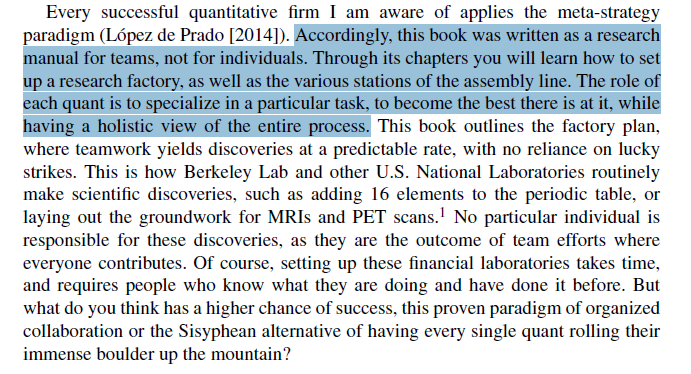In the past few months, I became really interested in using machine learning techniques in the realm of quantitative finance and trading. I made a few rudimentary models and I immediately realized how difficult it is.
I picked up a book "Advances in Financial Machine Learning" by Marcos Prado. It is an amazing source of information but is highly challenging. The author prefaces the book by saying that you have to work in a team to be successful at it and the book was written in the same way.
This is a bit discouraging and I am wondering if the only way to successfully pull it off is by finding a group of individuals with PhDs who are as motivated as I am in tackling this domain?
Are there individuals who have read this book or others such as these on their own and been successful in making models with predictive powers?

